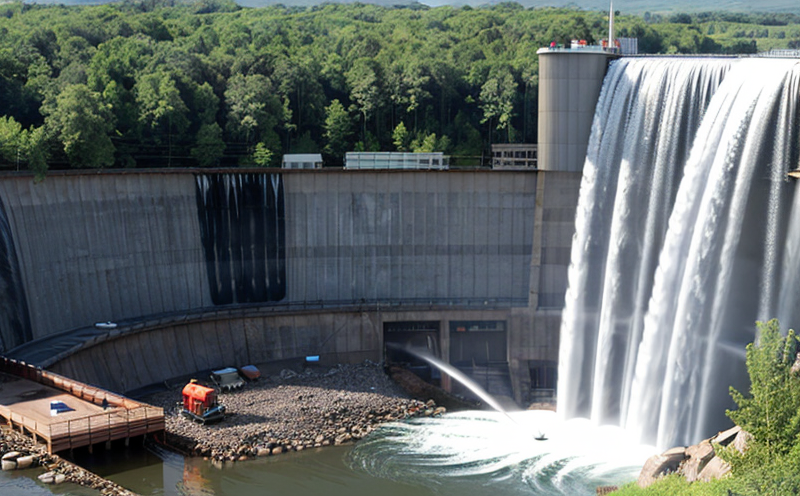Hydro energy testing and standards are crucial aspects of the hydroelectric power generation process. Hydroelectric power plants harness the energy of moving water to generate electricity, which requires a comprehensive understanding of the testing and standards involved in ensuring safe and efficient operation.
Testing and Standards for Hydro Energy
The testing and standards for hydro energy involve several key areas:
Hydro-Mechanical Equipment Testing: This includes the testing of equipment such as turbines, generators, and pumps. These tests are conducted to ensure that the equipment is functioning within acceptable limits and meets the required safety standards.
Turbine testing: This involves checking the turbines efficiency, power output, and response to changes in water flow rate and pressure. The test includes measuring the turbines speed, power, and vibration levels under various operating conditions.
Generator testing: This involves checking the generators efficiency, voltage output, and electrical insulation levels. The test includes measuring the generators power factor, frequency stability, and thermal performance.
Pump testing: This involves checking the pumps efficiency, flow rate, and pressure rating. The test includes measuring the pumps power consumption, vibration levels, and noise level.
Structural Integrity Testing: This includes the testing of the dam, spillway, and other structural components to ensure their integrity and safety. These tests are conducted to identify any potential weaknesses or defects that could affect the plants operation.
Dam testing: This involves checking the dams stability, leakage, and settlement rates. The test includes measuring the dams water pressure, flow rate, and structural deformation under various loading conditions.
Spillway testing: This involves checking the spillways capacity to handle extreme flows, erosion resistance, and hydraulic jump formation. The test includes measuring the spillways discharge coefficient, velocity, and turbulence levels.
Hydro Energy Standards
The standards for hydro energy are developed by various international and national organizations, including:
International Electrotechnical Commission (IEC): IEC is responsible for developing international standards for electrical equipment, including those used in hydroelectric power plants.
American Society of Civil Engineers (ASCE): ASCE develops standards for the design, construction, and operation of dams, which are critical components of hydroelectric power plants.
Hydro-Québec: Hydro-Québec is a leading developer of hydroelectric power plants and has developed its own set of standards for hydro energy testing and safety.
QA Section
Q: What are the key factors to consider when conducting hydro-mechanical equipment testing?
A: The key factors to consider include efficiency, power output, vibration levels, and electrical insulation levels. It is essential to test the equipment under various operating conditions to ensure that it functions within acceptable limits.
Q: Why is structural integrity testing crucial for hydroelectric power plants?
A: Structural integrity testing is crucial because it helps identify potential weaknesses or defects in the dam, spillway, and other structural components that could affect the plants operation. Regular testing can help prevent accidents and ensure safe and efficient operation.
Q: What are some common issues encountered during turbine testing?
A: Some common issues include low efficiency, high vibration levels, and poor power output. These issues can be caused by a range of factors, including inadequate maintenance, incorrect installation, or design flaws.
Q: Can you explain the importance of generator testing in hydroelectric power plants?
A: Generator testing is critical because it ensures that the generator functions within acceptable limits and meets required safety standards. Regular testing helps prevent electrical failures, which can lead to equipment damage, personnel injury, or even fatalities.
Q: What role do international organizations play in developing standards for hydro energy?
A: International organizations such as IEC, ASCE, and Hydro-Québec develop standards that are widely accepted and adopted globally. These organizations work together with national authorities to ensure that the standards meet global best practices and safety requirements.
Q: How can hydroelectric power plants reduce their environmental impact through testing and standards?
A: Hydroelectric power plants can reduce their environmental impact by implementing regular testing and maintenance programs, which help prevent equipment failures and minimize downtime. Additionally, using energy-efficient technologies and adhering to international standards for hydro energy can also contribute to reducing the plants carbon footprint.
Q: What are some common mistakes made during structural integrity testing?
A: Common mistakes include inadequate sampling, incorrect testing procedures, and failure to account for unusual loading conditions. Regular training and expertise in structural analysis are essential for accurate results and safe operation.
Q: Can you explain the importance of using advanced technologies such as sensors and monitoring systems in hydroelectric power plants?
A: Advanced technologies such as sensors and monitoring systems enable real-time monitoring and control of plant operations, which can improve efficiency, reduce downtime, and enhance safety. Regular testing and maintenance programs also help minimize equipment failures and extend the lifespan of critical components.
Q: How do national authorities ensure that hydro energy standards are implemented correctly?
A: National authorities typically work with industry stakeholders to develop guidelines and regulations for implementing international standards. They may also provide training and certification programs for personnel involved in testing and maintenance activities.
In conclusion, hydro energy testing and standards play a vital role in ensuring the safe and efficient operation of hydroelectric power plants. Regular testing and maintenance can help prevent accidents, minimize downtime, and reduce environmental impact. Understanding the key factors to consider during testing, including efficiency, vibration levels, and electrical insulation levels, is essential for plant operators and owners.

































